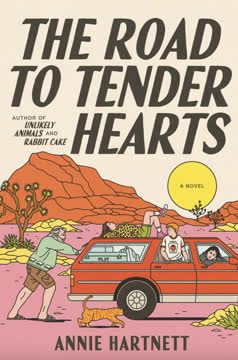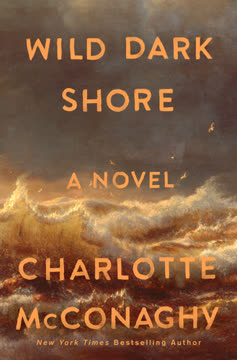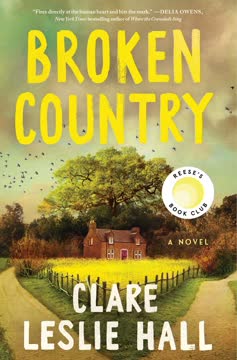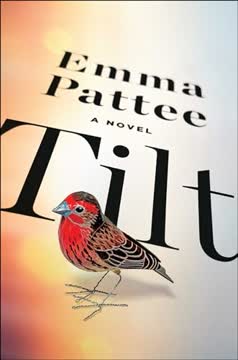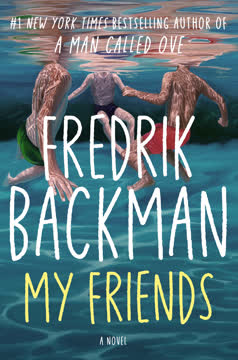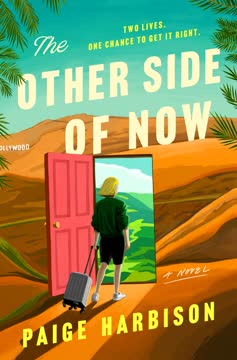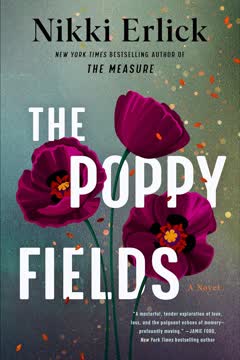Plot Summary
Cat of Death Arrives
In the small town of Pondville, Massachusetts, the local nursing home is in chaos. Pancakes, the orange therapy cat, has a supernatural knack for predicting which resident will die next, causing panic among the elderly. Dr. Gust, the nursing home director, both loves and fears the cat, especially when Pancakes starts lingering in his office. After a series of deaths and a public scandal, Dr. Gust tries to rid himself of Pancakes, but the cat escapes the shelter and sets off on his own journey through Pondville, carrying with him an "ancient knowledge" of the world's dangers and cruelties. The story's tone is set: this is not just about a cat, but about how people survive in a world where disaster is always lurking.
PJ's House of Loss
PJ Halliday, a 63-year-old former postman, lives alone in a house overflowing with memories and junk. His family has fallen apart: his ex-wife Ivy lives nearby with her new partner Fred, his daughter Sophie is grown and distant, and his other daughter, Kate, drowned tragically fifteen years ago. PJ's days are filled with routines—pills, coffee, walks to Ivy's for breakfast—while he clings to relics of the past, like Kate's softball hat. Despite winning the lottery years ago, PJ is emotionally bankrupt, haunted by grief, and unable to move on. His relationships with Ivy and Fred are complicated but caring, and he is a fixture in the community, known for his generosity and humor, but also for his failures.
The Meeklin Tragedy
Across town, the Meeklin family is unraveling. Frank Meeklin, a police officer, is cheating on his unstable wife Elaine, who is struggling with mental illness and trauma from her abusive father. Their children, Luna and Ollie, are close in age and both troubled. On a fateful day, Elaine poisons Frank's coffee with Visine, intending only to make him sick, but he dies in a car accident before the poison takes effect. Tragically, Ollie accidentally drinks the same coffee and is hospitalized. Overwhelmed by guilt and fear, Elaine kills herself, leaving behind a hastily written will naming her estranged uncle PJ as guardian for her children. The town is shocked by the murder-suicide, and Luna and Ollie are sent into foster care.
Orphans and Guardians
PJ, oblivious to the tragedy, is contacted by social worker Belinda Bell and learns he is the only living relative able to take in Luna and Ollie. Despite his doubts and checkered past (including DUIs and alcoholism), PJ agrees, seeing a chance for redemption. He scrambles to prepare for their arrival, cleaning up his house and buying supplies. The children, traumatized and wary, arrive with trash bags of belongings. Luna is silent and angry, obsessed with the idea that her real father is a soap opera actor, while Ollie is sweet but anxious. PJ, with the help of his daughter Sophie, tries to create a safe home, but the wounds of the past linger.
A Road Trip Begins
With Ivy and Fred away, PJ, Sophie, Luna, Ollie, and Pancakes the cat set out on a road trip. Luna is determined to find her supposed real father, Mark Stackpole, at a soap opera fan event in Texas. Sophie, recently unemployed and struggling with her own grief, joins to help. The journey is chaotic: the kids bicker, Luna shoplifts, Sophie and PJ argue, and Pancakes causes trouble. Along the way, they visit Niagara Falls, a wax museum, and an alpaca farm, encountering eccentric locals and facing their own demons. The road trip becomes a crucible for the makeshift family, forcing them to confront their pain, secrets, and hopes.
Sins, Secrets, and Snacks
As the miles pass, the group's secrets spill out. Luna reveals the abuse she suffered from her grandfather, and her fixation on finding a new father. Sophie confesses her struggles with depression and her complicated relationship with her parents. PJ admits his failures as a father and husband, and his fear of repeating past mistakes. The children act out—Luna cuts Sophie's hair in anger, Ollie threatens to run away—but moments of tenderness and humor break through. The cat, Pancakes, weaves in and out of their lives, a symbol of both death and comfort. The family's journey is marked by small disasters (a near-fatal gas leak, a night in a haunted hotel) and moments of unexpected grace.
Niagara Falls and New Beginnings
At Niagara Falls, the family is awed by the power of nature and the randomness of survival. They narrowly escape a deadly gas leak in their hotel, thanks to Pancakes' insistence on open windows. The incident becomes a turning point: PJ realizes the fragility of life and recommits to caring for the children. The group continues south, stopping at quirky attractions and sharing stories—some true, some embellished—about their pasts. The road trip becomes a way to rewrite their family history, to find meaning in loss, and to create new memories together.
The Cat's Nine Lives
In Texas, the family's fragile unity is tested. The car is impounded, the children run away, and Pancakes escapes, leading to a frantic search through Sugar Land. Luna and Ollie, feeling unwanted and betrayed, try to pawn a stolen ring and consider running to Mexico. PJ and Sophie, desperate and guilt-ridden, enlist the help of local teens and eventually find the children in a mall, where Ollie threatens to drop Pancakes from a balcony to get Luna's attention. The crisis forces PJ to confront his own worth as a guardian and to promise, sincerely, to try to love and protect the children, even without money or certainty.
Family History Unraveled
The journey continues to Arizona, where PJ hopes to reunite with his old flame, Michelle Cobb. At a funeral in a retirement community, PJ learns a shocking truth: Michelle is his half-sister, the result of his mother's secret affair. The stories he believed about his mother's adventurous life were fabrications, meant to give him hope. This revelation reframes PJ's understanding of family, belonging, and the stories we tell to survive. Meanwhile, Luna receives confirmation that Mark Stackpole is her biological father, but he wants nothing to do with her. The children, devastated but resilient, begin to accept that family is not defined by blood alone.
The Texas Test
At the soap opera event, Luna confronts Mark Stackpole, who agrees to a paternity test but offers only financial support, not love or involvement. The children, feeling abandoned again, run away, leading to a dramatic scene in a mall where Ollie threatens to drop Pancakes to force Luna to listen. PJ and Sophie find them, and PJ finally articulates what it means to love children: to worry, to protect, to hope, and to accept imperfection. The family, battered but together, decides to continue on to Arizona, seeking closure and a new beginning.
Lost and Found in Sugar Land
The family's journey culminates in Arizona, where they stay with Michelle Cobb and her community. PJ attends AA meetings, finds solace in new connections, and begins to heal. Sophie and PJ reconcile, acknowledging their shared grief and the ways they have hurt and helped each other. The children, embraced by the retirement community, start to feel safe and loved. The results of Luna's paternity test arrive, confirming Mark Stackpole as her father, but the family chooses to move forward together, redefining what it means to belong.
Arizona, Answers, and Homecoming
News arrives that Ivy, PJ's ex-wife, is terminally ill. The family flies back to Pondville, where Fred and Ivy welcome them. PJ, now sober and determined to do better, commits to caring for Luna and Ollie, with Sophie's help. The children settle into their new home, finding comfort in routines, community, and each other. Pancakes, the cat who once heralded death, becomes a symbol of survival and continuity. The family, though scarred by loss, chooses to embrace life, love, and the possibility of happiness.
The Endings We Choose
The story closes with the family gathered in Pondville, reflecting on the journey they have taken. PJ and Sophie, having faced their own failures and fears, find strength in each other and in the children they now care for. Ivy's illness hangs over them, but the family is determined to make the most of the time they have. The narrative affirms that while tragedy and death are inevitable, so too are resilience, laughter, and the bonds we forge. The cat, Pancakes, curls up beside Ivy, a final reminder that comfort and hope can be found even in the darkest times.
Characters
PJ Halliday
PJ is a 63-year-old former postman whose life is defined by loss: his daughter Kate's death, his failed marriage, and his own self-destructive habits. He is both lovable and exasperating—generous, funny, and deeply sensitive, but also unreliable and prone to self-pity. His journey as a reluctant guardian to Luna and Ollie becomes a quest for redemption, forcing him to confront his failures as a father and husband. PJ's psychological arc is one of gradual self-acceptance and growth, as he learns to love and protect others despite his imperfections.
Sophie Halliday
Sophie, PJ's surviving daughter, is in her twenties and struggling with depression, unemployment, and the long shadow of her sister's death. She is fiercely loyal to her mother and resentful of her father's neediness, yet she cannot abandon him. Sophie's relationship with Luna and Ollie becomes a source of healing, as she discovers her own capacity for care and resilience. Her journey is one of moving from passive suffering to active engagement with life, learning to forgive herself and others.
Luna Meeklin
Luna, ten, is sharp-witted, rebellious, and deeply wounded by her family's dysfunction and abuse. She is obsessed with the idea that her real father is a soap opera star, a fantasy that gives her hope for escape and love. Luna's psychological complexity is rooted in trauma, mistrust, and a longing for safety. Her development is marked by moments of vulnerability and defiance, as she gradually learns to trust PJ, Sophie, and herself.
Ollie Meeklin
Ollie, nine, is Luna's younger brother and emotional anchor. He is gentle, eager to please, and deeply affected by the chaos around him. Ollie's innocence is both a source of strength and vulnerability; he is often caught between Luna's schemes and his own need for stability. His relationship with Luna is central—he forgives her, supports her, and ultimately helps her find her way back to family.
Ivy Halliday
Ivy is PJ's ex-wife, a former art teacher who has rebuilt her life with Fred but remains connected to PJ and Sophie. She is practical, loving, and the emotional center of the family, even as she faces her own mortality. Ivy's approach to grief is to focus on the living, but her illness brings unresolved feelings to the surface, prompting reconciliation and renewed bonds.
Fred Sharp
Fred, Ivy's partner and a retired judge, is a stabilizing force in the family. He is patient with PJ, supportive of Sophie, and committed to Ivy. Fred's presence allows for healing and second chances, and his willingness to include PJ in his life demonstrates the power of forgiveness and chosen family.
Pancakes the Cat
Pancakes is more than a pet; he is a symbol of fate, mortality, and the possibility of comfort in the face of death. His uncanny ability to predict death unsettles those around him, but his presence also brings solace and connection. Pancakes' journey mirrors that of the family: from harbinger of doom to companion in survival.
Michelle Cobb
Michelle is PJ's high school sweetheart, later revealed to be his half-sister. Her presence in Arizona provides answers to PJ's questions about his family history and offers a model of acceptance and generosity. Michelle's willingness to embrace PJ and the children helps redefine what family can mean.
Belinda Bell
The social worker assigned to Luna and Ollie's case, Belinda is a voice of the system—caring but constrained by bureaucracy. She represents the challenges of child welfare and the importance of kinship care, pushing PJ to step up as a guardian despite his flaws.
Elaine Meeklin
Elaine, Luna and Ollie's mother, is a victim of generational trauma and mental illness. Her actions—poisoning her husband and accidentally her son, then taking her own life—are both horrifying and pitiable. Elaine's story is a cautionary tale about the consequences of untreated pain and the limits of endurance.
Plot Devices
The Cat as Harbinger
Pancakes' presence signals impending doom, setting the tone for the novel's exploration of mortality and fate. His journey from nursing home to family companion mirrors the characters' movement from despair to hope, and his actions often foreshadow key events.
Intergenerational Trauma
The novel uses flashbacks, confessions, and diary entries to reveal the hidden wounds that shape each character. The legacy of abuse, addiction, and loss is confronted and, in some cases, broken, as the characters strive to create a new story for themselves.
Road Trip Structure
The cross-country road trip provides a framework for character development, episodic encounters, and the gradual forging of bonds. Each stop—Niagara Falls, the wax museum, the alpaca farm, Texas, Arizona—serves as a stage for revelation, conflict, and healing.
Humor Amidst Tragedy
The novel balances its heavy themes with sharp wit, absurd situations, and moments of levity. Humor becomes a survival strategy for the characters, allowing them to process grief and trauma without being overwhelmed.
Found Family
The story challenges traditional notions of family, emphasizing the importance of chosen bonds, forgiveness, and mutual care. The characters' willingness to accept and love each other, despite flaws and failures, is the novel's central message.
Analysis
The Road to Tender Hearts is a darkly comic, deeply compassionate exploration of how people survive the worst life can offer. Through the lens of a dysfunctional, makeshift family—brought together by tragedy, held together by necessity—the novel examines the enduring impact of grief, the cycles of intergenerational trauma, and the possibility of redemption. Annie Hartnett's narrative is unflinching in its portrayal of abuse, addiction, and loss, yet it refuses to succumb to despair. Instead, it insists on the power of humor, storytelling, and human connection to create meaning and hope. The book's central lesson is that while we cannot escape pain or prevent disaster, we can choose how we respond: by loving fiercely, forgiving generously, and finding comfort in the bonds we build. In a world where "no one is safe anywhere," the act of caring for one another—however imperfectly—is both an act of defiance and a source of salvation.
The novel's structure, centered around a road trip, serves as both a literal and metaphorical journey of healing. As PJ, Sophie, Luna, and Ollie travel across the country, they are forced to confront their past traumas, current fears, and hopes for the future. The road trip becomes a crucible for transformation, allowing each character to shed old identities and forge new connections.
Pancakes, the cat as harbinger of death, serves as a unique plot device that intertwines elements of magical realism with the stark realities of loss and mortality. His presence throughout the story reminds readers of the fragility of life while also offering moments of comfort and connection.
The concept of found family is central to the novel's message. As PJ reluctantly takes on the role of guardian to Luna and Ollie, and as Sophie finds herself drawn into their lives, the characters learn that family is not defined by blood but by choice and commitment. This theme is further explored through relationships with characters like Fred and Michelle, who become integral parts of the family unit despite lacking biological ties.
Hartnett's use of humor amidst tragedy is a key element in balancing the novel's heavy themes. The characters' ability to find moments of levity and absurdity in their darkest hours serves as both a coping mechanism and a testament to human resilience. This approach allows the novel to explore deeply painful subjects without becoming overwhelmingly bleak.
Ultimately, The Road to Tender Hearts is a story about the power of compassion, forgiveness, and the human capacity for change. Through the journeys of PJ, Sophie, Luna, and Ollie, readers are invited to consider their own relationships, traumas, and the possibility of healing through connection and care. The novel suggests that while we cannot escape the pain of living, we can choose to face it together, finding strength and tenderness in our shared vulnerability.
Last updated:
FAQ
Synopsis & Basic Details
What is The Road to Tender Hearts about?
- A Journey of Healing: The Road to Tender Hearts follows PJ Halliday, a lottery-winning widower in Pondville, Massachusetts, whose life is upended when he becomes the reluctant guardian of his estranged niece's orphaned children, Luna and Ollie, after a tragic murder-suicide.
- Cross-Country Quest: To fulfill Luna's desperate wish to find her supposed biological father, a soap opera actor, PJ, his daughter Sophie, the children, and a death-predicting cat named Pancakes embark on a chaotic cross-country road trip.
- Redefining Family Bonds: The journey forces this makeshift family to confront their individual traumas, secrets, and the meaning of belonging, ultimately leading to unexpected revelations about PJ's own past and a redefinition of what it means to be a family.
Why should I read The Road to Tender Hearts?
- Darkly Humorous Exploration: Readers should delve into The Road to Tender Hearts for its unique blend of dark humor and profound emotional depth, tackling heavy themes like grief, trauma, and addiction with surprising wit and compassion.
- Unforgettable Characters: The novel features a cast of eccentric, deeply flawed, yet utterly lovable characters, from the curmudgeonly PJ to the fiercely intelligent Luna and the mystical Pancakes, whose journeys offer rich psychological insights.
- A Story of Hope and Resilience: Despite its exploration of life's darkest corners, the book ultimately delivers a powerful message about human resilience, the healing power of connection, and the enduring hope found in chosen family, making it a truly moving and thought-provoking read.
What is the background of The Road to Tender Hearts?
- Author's Personal Experiences: Annie Hartnett drew inspiration from her own experiences living in a "cursed" rental house in Lakeville (the real-life Pondville), which suffered gas leaks, floods, and a neighbor's tragedy, channeling these anxieties into the novel's pervasive sense of lurking doom.
- Exploration of Parental Fears: The book serves as a literary outlet for Hartnett's worries about parenthood and personal capability, transforming her fears about not being a "good enough parent" or "capable enough person" into the narrative's core themes of responsibility and redemption.
- Humor as a Coping Mechanism: The author explicitly states her intention to make the book "as funny as I possibly could," using humor as a primary coping mechanism for anxiety, fear, and terror, inviting readers to "laugh together about hard things."
What are the most memorable quotes in The Road to Tender Hearts?
- "No one was safe in Pondville, because no one is safe anywhere." (Chapter 1): This opening declaration by Pancakes the cat immediately establishes the novel's central theme of pervasive vulnerability and the unpredictable nature of life, setting a darkly realistic tone for the tragedies that unfold.
- "Loving your kids is protecting them from stupid shit that they think they want to do... Loving children is when they hold your hand with their little sweaty, meaty paw and you feel a direct wire to your heart." (Chapter 45): PJ's heartfelt, impromptu speech at the mall encapsulates his profound transformation, articulating a raw, imperfect, yet deeply committed definition of parental love that transcends his earlier self-pity and selfishness.
- "Death is a magnificent invention... because it's the impermanence of life that makes it beautiful." (Chapter 52): Pancakes' final philosophical reflection offers a poignant, almost mystical perspective on mortality, suggesting that the fleeting nature of existence is precisely what imbues life with its preciousness and meaning, a stark contrast to human fear of loss.
What writing style, narrative choices, and literary techniques does Annie Hartnett use?
- Darkly Comic Tone: Hartnett masterfully employs dark humor and irony to navigate profound grief and trauma, creating a narrative voice that is both unflinching in its portrayal of suffering and surprisingly lighthearted, allowing readers to process difficult themes without being overwhelmed.
- Episodic Road Trip Structure: The novel utilizes a classic road trip framework, where each stop and encounter serves as a self-contained episode that reveals new layers of character, advances the plot, and explores thematic elements, mirroring the characters' journey of self-discovery and healing.
- Magical Realism & Anthropomorphism: The inclusion of Pancakes, the death-predicting cat, and the occasional anthropomorphic elements (like the talking hat or house) injects a subtle layer of magical realism, blurring the lines between reality and the characters' internal worlds, and offering unique perspectives on mortality and connection.
Hidden Details & Subtle Connections
What are some minor details that add significant meaning?
- Ivy's Newspaper Clippings: Fred's office, initially thought to contain his old court files, is revealed to house Ivy's boxes of newspaper clippings detailing tragedies involving children and animals. This subtle detail highlights Ivy's hidden grief and her coping mechanism of collecting "bad news" as a way to process Kate's death, making ordinary things "sacred" because "there's nothing in the world anyone can actually hold on to" (Chapter 8).
- The Engraved Engagement Ring: The inscription "Don't Worry, We'll Figure It Out" inside Ivy's original engagement ring, which PJ attempts to repurpose for Michelle Cobb, is a poignant callback to Ivy and PJ's shared past and their initial marital motto. It underscores the deep, complex history of their relationship and the enduring, if fractured, bond that still exists between them, even as PJ tries to move on (Chapter 48).
- The Parrot's Profane Wisdom: In Hellsgate, Sophie encounters a parrot in a pet shop that repeats "I hope you kill yourself, you cocksucker" and "That'll be forty dollars" (Chapter 24). This seemingly random, darkly humorous detail reflects Sophie's internal turmoil and depression, externalizing her own self-destructive thoughts and the transactional nature of some human interactions, while also providing a moment of unexpected, cathartic laughter.
What are some subtle foreshadowing and callbacks?
- Pancakes' Early Escapes: Pancakes' initial escape from the animal shelter by picking the lock (Chapter 1) subtly foreshadows Luna's later escape from the motel bathroom using a similar method (Chapter 8), highlighting the children's resourcefulness and their shared instinct for freedom and self-preservation.
- The "Don't Jump!" Sign: The "Don't Jump!" sign at Niagara Falls (Chapter 15) and PJ's memory of contemplating suicide on a bridge after Kate's death (Chapter 15) foreshadow the later revelation of the man in the yellow windbreaker jumping from the falls (Chapter 16), emphasizing the pervasive theme of suicide and the constant struggle against despair that many characters face.
- The Boar's Tooth Motel's Reputation: The Longhorn's story about the Boar's Tooth Motel being "the best place in town to kill yourself" (Chapter 37) subtly foreshadows the carbon monoxide leak that nearly kills PJ and the children, transforming a place associated with intentional death into a site of accidental, mass mortality, and underscoring the randomness of survival.
What are some unexpected character connections?
- PJ and Michelle Cobb as Half-Siblings: The most significant unexpected connection is the revelation that PJ's high school sweetheart, Michelle Cobb, is actually his half-sister, sharing the same father, Ed Cobb (Chapter 49). This twist redefines PJ's entire understanding of his family history, his mother's past, and his lifelong romantic pursuit, transforming a love story into a tale of kinship.
- PJ's Mother's Fabricated Past: Michelle's revelation that PJ's mother, Regina Halliday, never actually traveled the country or met Frank Sinatra, but instead lived in the next town over, working at a pie shop and barbershop (Chapter 49), shatters PJ's cherished childhood stories. This exposes the profound lengths Regina went to create a hopeful narrative for her son, highlighting the protective power of storytelling in the face of a difficult reality.
- The Mall Cop's Germaphobia: Officer Curtin, the mall cop who pulls over Sophie and PJ, is revealed to be a germaphobe, wearing latex gloves and having a nickname "Condom-Hands Curtin" (Chapter 42). This unexpected character detail adds a layer of quirky humanity to an otherwise authoritative figure, subtly connecting to the novel's theme of finding humor and vulnerability in unexpected places, even amidst a tense situation.
Who are the most significant supporting characters?
- Destiny, the Motel Manager: Destiny, the manager of the Boar's Tooth Motel, initially appears as a quirky, cynical figure, but her personal story of battling terminal cancer and her quiet act of kindness towards PJ (driving him to the bar, caring for Pancakes) reveal her profound resilience and empathy (Chapter 36). She embodies the novel's theme that even in the darkest moments, human connection and compassion can emerge.
- The Longhorn at the Bar: The unnamed man in the Longhorns jersey at the Half-Moon Bar becomes a pivotal confidant for PJ, sharing his own tragic story of killing his wife while drunk and offering profound insights into grief, storytelling, and the nature of addiction (Chapter 37). His wisdom, despite his own struggles, helps PJ articulate his pain and consider sobriety, serving as a catalyst for PJ's emotional growth.
- Big Kevin, the Alpaca Farmer: Big Kevin, the jovial, John Candy-esque alpaca farmer and former corrections officer, provides a moment of unexpected warmth and quirky wisdom on the road trip (Chapter 26). His pride in his singing alpacas and his possession of an electric chair (Ol' Sparky) highlight the novel's blend of the absurd and the macabre, while his personal journey from prison guard to alpaca farmer symbolizes the possibility of radical transformation and finding passion in unexpected places.
Psychological, Emotional, & Relational Analysis
What are some unspoken motivations of the characters?
- PJ's Quest for Redemption: Beyond simply caring for the children, PJ's unspoken motivation for taking on Luna and Ollie is a desperate attempt at redemption for his past failures as a father and husband, particularly after Kate's death and Sophie's subsequent struggles. He explicitly states, "I messed it up so bad the first time. One of my daughters died and the other one—well, she hates me" (Chapter 45), revealing his deep-seated guilt and desire for a "second chance" (Chapter 7).
- Sophie's Need for Purpose: Sophie's decision to join the road trip, despite her initial reluctance and her father's exasperating behavior, is driven by an unspoken need for purpose and a desire to escape her own stagnant life. Unemployed and struggling with depression, she finds a sense of responsibility and meaning in caring for the children, stating, "I need to help these kids" (Chapter 11), which subtly becomes her path to healing.
- Luna's Search for Unconditional Love: Luna's intense fixation on Mark Stackpole as her "real father" is an unspoken yearning for unconditional love and a sense of belonging, a direct response to the trauma of her abusive grandfather and her parents' dysfunctional relationship. Her belief that a famous, idealized father would provide the safety and affection she craves motivates her entire journey, even as it sets her up for potential heartbreak.
What psychological complexities do the characters exhibit?
- PJ's Grief and Self-Sabotage: PJ exhibits complex psychological patterns of prolonged grief, manifesting as alcoholism, self-pity, and a tendency to romanticize the past. His lottery winnings, instead of bringing peace, enable his self-destructive behavior, as he "carried the weight of the world" (Chapter 4) and used his money to avoid confronting his pain, rather than investing in his future.
- Sophie's Trauma Response and Codependency: Sophie displays classic trauma responses, including depression, self-harm (implied by her wrist scars), and a deep-seated codependency with her mother, stemming from Kate's death and her father's alcoholism. Her anger at PJ is a protective mechanism, but her inability to fully separate from her parents' issues highlights her own unresolved psychological wounds.
- Elaine Meeklin's Generational Trauma: Elaine Meeklin's actions are rooted in a cycle of intergenerational trauma, having suffered abuse from her father and then marrying a man with anger issues. Her mental illness, exacerbated by her father's suicide and husband's affair, leads to a desperate, tragic attempt to regain control, showcasing the devastating psychological impact of unresolved pain and the breakdown of coping mechanisms.
What are the major emotional turning points?
- PJ's Near-Death Experience at the Golden Cherry: The carbon monoxide leak at the Golden Cherry Inn, from which PJ and the children are saved by Pancakes' actions, serves as a profound emotional turning point for PJ. This near-death experience jolts him into realizing the preciousness of life and his responsibility to the children, prompting his renewed commitment to sobriety and care, stating, "There is a reason I am still alive. I am still alive so I can protect you kids" (Chapter 32).
- Luna's Confrontation with Mark Stackpole: Luna's direct confrontation with Mark Stackpole, where he offers only financial support and dismisses their connection as a "terrible mistake" (Chapter 42), is a devastating emotional turning point. Her subsequent outburst and realization that "You don't want me" shatters her idealized fantasy, forcing her to confront the harsh reality of rejection and begin the painful process of redefining her sense of belonging.
- Sophie's Breakdown and Reconciliation with PJ: Sophie's emotional breakdown in the limo, where she tearfully confronts PJ about the burden of caring for him and her mother's quiet suffering (Chapter 47), marks a critical turning point in their relationship. This raw vulnerability allows PJ to finally acknowledge his selfishness and Sophie's strength, leading to a genuine reconciliation and a shared commitment to caring for the children, transforming their dynamic from resentment to mutual support.
How do relationship dynamics evolve?
- PJ and Sophie: From Burden to Partnership: PJ and Sophie's relationship evolves from one of resentment and codependency, where Sophie feels burdened by her father's alcoholism and neediness, to a genuine partnership. Sophie's willingness to articulate her pain and PJ's subsequent acceptance of responsibility ("I know I've been selfish. I know I've taken advantage of you and your mother and Fred" - Chapter 47) allows them to forge a new, healthier bond based on mutual support and shared purpose in caring for the children.
- Luna and Ollie: From Sibling Rivalry to Unbreakable Bond: The Meeklin children's relationship, initially marked by Luna's dominance and Ollie's quiet resentment, transforms into an unbreakable bond forged through shared trauma and their journey. Despite their bickering and Luna's occasional cruelty, Ollie's unwavering loyalty and Luna's eventual recognition of their interdependence ("We have each other" - Chapter 35) solidify their connection, culminating in their decision to remain "Irish twins" regardless of paternity.
- PJ and Ivy: From Estrangement to Enduring Love: PJ and Ivy's post-divorce relationship, characterized by Ivy's practical care and PJ's lingering hope for reconciliation, deepens in the face of Ivy's terminal illness. The revelation of Ivy's brain cancer forces PJ to confront his past failures and appreciate her enduring love and strength. Their final interactions, though tinged with sadness, highlight a profound, unwavering connection that transcends their marital failures and PJ's romantic delusions.
Interpretation & Debate
Which parts of the story remain ambiguous or open-ended?
- The True Nature of Pancakes' Abilities: While Pancakes consistently predicts death and even seems to "save" the family from the gas leak, the exact nature of his abilities remains ambiguous. Is it genuine supernatural foresight, or a combination of keen animal instinct, observation, and the characters' projection of meaning onto his actions? The narrative leans into the mystery, allowing readers to interpret his role as either mystical harbinger or symbolic companion.
- The Mermaid of Clear Pond: PJ's lifelong quest to see the mermaid of Clear Pond, culminating in a fleeting glimpse in the cranberry bogs (Chapter 10), leaves her existence open to interpretation. Is she a literal mythological creature, a hallucination brought on by PJ's grief and sobriety, or a symbol of the elusive hope and magic he seeks in his life? Her appearance in the bogs, where Kate drowned, adds a layer of poignant ambiguity to her meaning.
- The Long-Term Sobriety of PJ: While PJ makes a sincere commitment to sobriety by the end of the novel, attending AA meetings and acknowledging his past, the narrative leaves his long-term success open-ended. His history of relapse and the inherent difficulty of addiction suggest that his journey is ongoing, reflecting the realistic challenges of recovery rather than offering a definitive, tidy resolution.
What are some debatable, controversial scenes or moments in The Road to Tender Hearts?
- Elaine Meeklin's Motivations for Poisoning: The novel presents Elaine Meeklin's poisoning of her husband (and accidentally her son) as a tragic act stemming from mental illness and generational trauma, but her specific motivations are open to debate. Was it a desperate act of self-preservation against an abusive husband, a psychotic break, or a twisted attempt to protect her children from a similar fate to her own? The ambiguity challenges readers to grapple with the complexities of culpability and victimhood.
- PJ's "Joking" Negotiation for Child Support: PJ's negotiation with Mark Stackpole for $7,000 a month in child support, where he claims he was "joking" about wanting money to take care of the kids (Chapter 42), is a controversial moment. It raises questions about his sincerity, his capacity for manipulation, and whether his love for the children is truly unconditional or still intertwined with financial gain, sparking debate about his moral character at that point in his journey.
- Sophie's Decision to Join the Road Trip: Sophie's choice to accompany her father on the road trip, despite her deep-seated resentment and knowledge of his unreliability, can be seen as controversial. While framed as an act of responsibility and a search for purpose, it also highlights her own codependent tendencies and her struggle to break free from her family's dysfunctional patterns, prompting discussion about the boundaries of familial obligation.
The Road to Tender Hearts Ending Explained: How It Ends & What It Means
- A Return to Pondville, Transformed: The novel concludes with PJ, Sophie, Luna, Ollie, and Pancakes returning to Pondville, not as the broken individuals who left, but as a newly forged, albeit imperfect, family. They settle into Fred and Ivy's house, with PJ committed to sobriety and caring for the children, and Sophie embracing her role as a supportive figure. This signifies that while the physical location is the same, the characters' internal landscapes have profoundly shifted.
- Acceptance of Impermanence and Chosen Family: The ending emphasizes the acceptance of life's impermanence, particularly with Ivy's terminal illness, and the profound importance of chosen family. PJ's realization that his mother's adventurous stories were fabrications, and Michelle Cobb's revelation as his half-sister, redefine his understanding of kinship. The children, having faced rejection from their biological father, find love and stability with PJ and Sophie, illustrating that family is built on care and commitment, not just blood.
- Hope Amidst Ongoing Grief: Despite the looming tragedy of Ivy's death and the lingering scars of past traumas, the ending is imbued with a sense of hard-won hope. PJ's sobriety, Sophie's newfound purpose, and the children's growing sense of safety suggest a future where resilience and love can prevail. Pancakes' final thought—"Death is a magnificent invention... because it's the impermanence of life that makes it beautiful" (Chapter 52)—underscores the novel's ultimate message: that embracing life's fragility allows for a deeper appreciation of its beauty and the connections we forge.
Review Summary
The Road to Tender Hearts is a heartwarming, quirky novel that balances tragedy and humor. It follows PJ Halliday, a flawed but lovable 63-year-old lottery winner, on a cross-country road trip with his daughter, two orphaned children, and a death-predicting cat named Pancakes. Readers praise Hartnett's ability to blend dark themes with whimsical storytelling, creating relatable characters and poignant moments. While some found certain elements disturbing, most reviewers lauded the book's unique charm, emotional depth, and ability to tackle serious subjects with warmth and humor.
Similar Books
Download PDF
Download EPUB
.epub digital book format is ideal for reading ebooks on phones, tablets, and e-readers.
